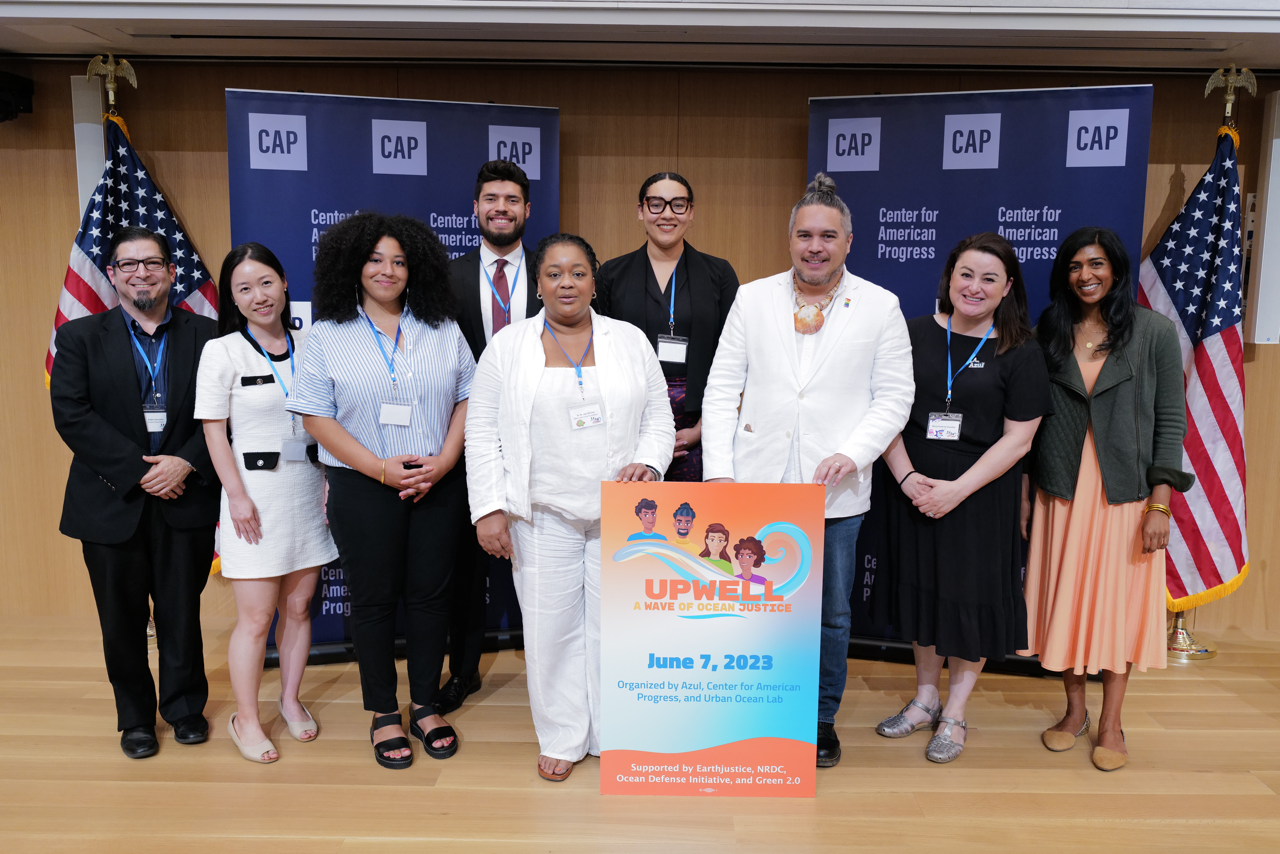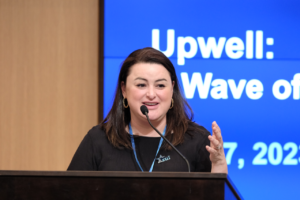When you can’t find a seat at the table – start your own table and bring your own chairs.

The following is a Q&A conversation with Marce Gutiérrez-Graudiņš, Azul’s founder and executive director as she reflects on #Upwell2023, an Azul-powered symposium on the rising tide of justice and equity in ocean policy focused on bringing together advocates of color and our allies.
Reflecting on Upwell: A Wave of Ocean Justice
Question: Tell us about Upwell’s origins. What sparked the necessity to make Upwell, an intentional space for BIPOC ocean justice advocates, a reality?
Gutiérrez-Graudiņš: Azul, as an organization, is at the forefront of ocean justice leadership in the U.S. – and we recognize that many convening spaces weren’t created with us or people of color, like us. Conferences and Capitol Hill-focused efforts that feature Black, Indigenous and People of Color to talk only about diversity or to moderate white scientists, but don’t make space for our [BIPOC] science, policy and advocacy leadership and expertise are patronizing. This space was carefully curated and we’ve been thinking of it – dreaming it up for a couple of years now. In addition to Azul, we know people of color have been trying to have our voices heard in traditional ocean spaces without much movement from large environmental organizations to evolve. We played an instrumental role in creating and collaboratively hosting the first ever Upwell in June 2023 and feedback suggests it was a success, and we are still learning, as well as our partners, about how to continue bringing a convening like this back to Washington, D.C. in a way that centers experiences of BIPOC ocean advocates.
Question: Tell us about Azul’s partners for this first convening:
Gutiérrez-Graudiņš: Azul hosted Upwell with Urban Ocean Lab and the Center for American Progress for its inaugural year. This event was supported by Earthjustice, the Natural Resources Defense Council, Ocean Defense Initiative, and Green 2.0. Plans are in discussion for a second annual gathering in 2024.
Question: This symposium brought together multicultural and multigenerational leaders. How do you hope this event will support ocean advocates across their careers?
Gutiérrez-Graudiņš: I personally hope this space becomes one where we continue to prioritize the experiences of people who have been historically excluded in ocean conservation. And that this is the space where we can support people at all stages of their careers, help them elevate their voices and provide resources that can help ensure we aren’t burning out the very BIPOC leaders this movement needs to better embrace. For Azul, we know that legacies of racism, colonialism, and industrialization won’t be disrupted overnight, but spaces like Upwell can help. We also loved seeing the inaugural class of Azul’s Rising Leaders Initiative graduates in the audience.
Question: What would it have meant to you to have a space like this when you were starting out as a leader in the ocean justice space?
Gutiérrez-Graudiņš: I can only imagine the relief I would have felt having Upwell available to me 15 years ago. But now, for Azul’s Rising Leaders, for our Ray Fellow, for BIPOC youth in the movement, we don’t have to imagine what it means any longer. No longer will we wonder where we can go that will be affirming and validating. Our communities are disproportionately affected by the impacts of climate change, including rising sea levels, intensifying storms, pollution, overfishing, loss of habitat and biodiversity, and coastal gentrification – and now, the new wave of ocean justice leadership is here and we’ll embrace this growing convening space and the network it brings together. We made it happen!
